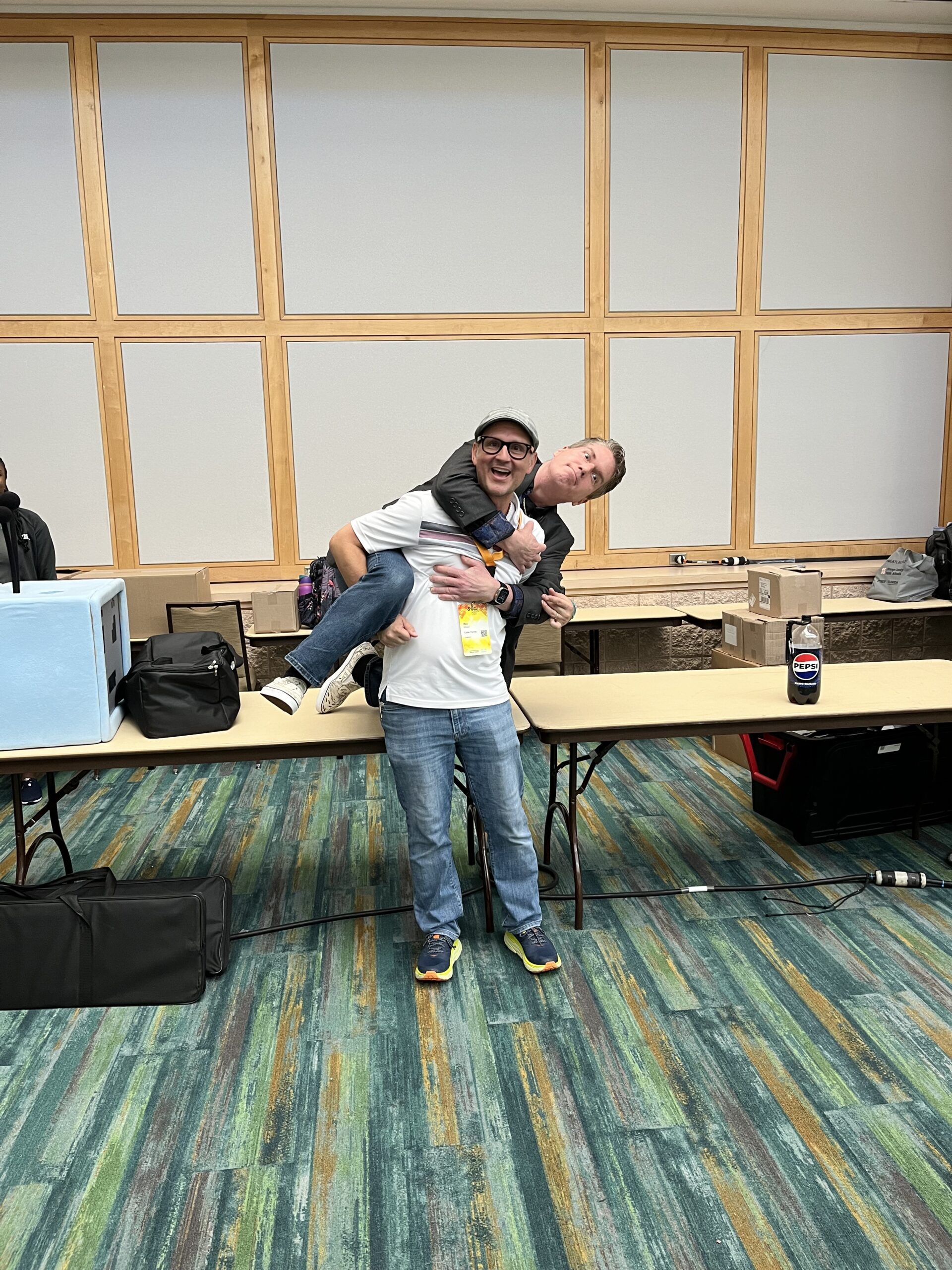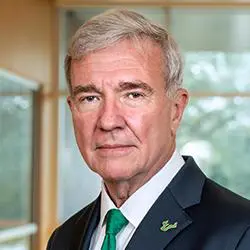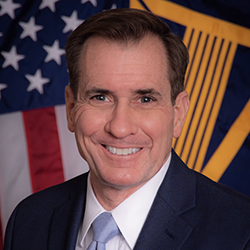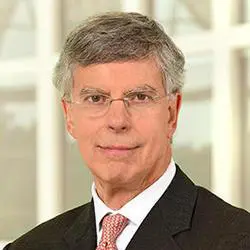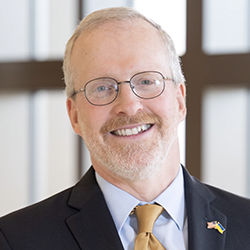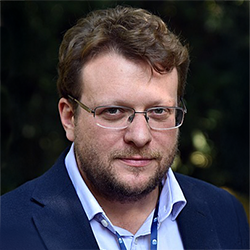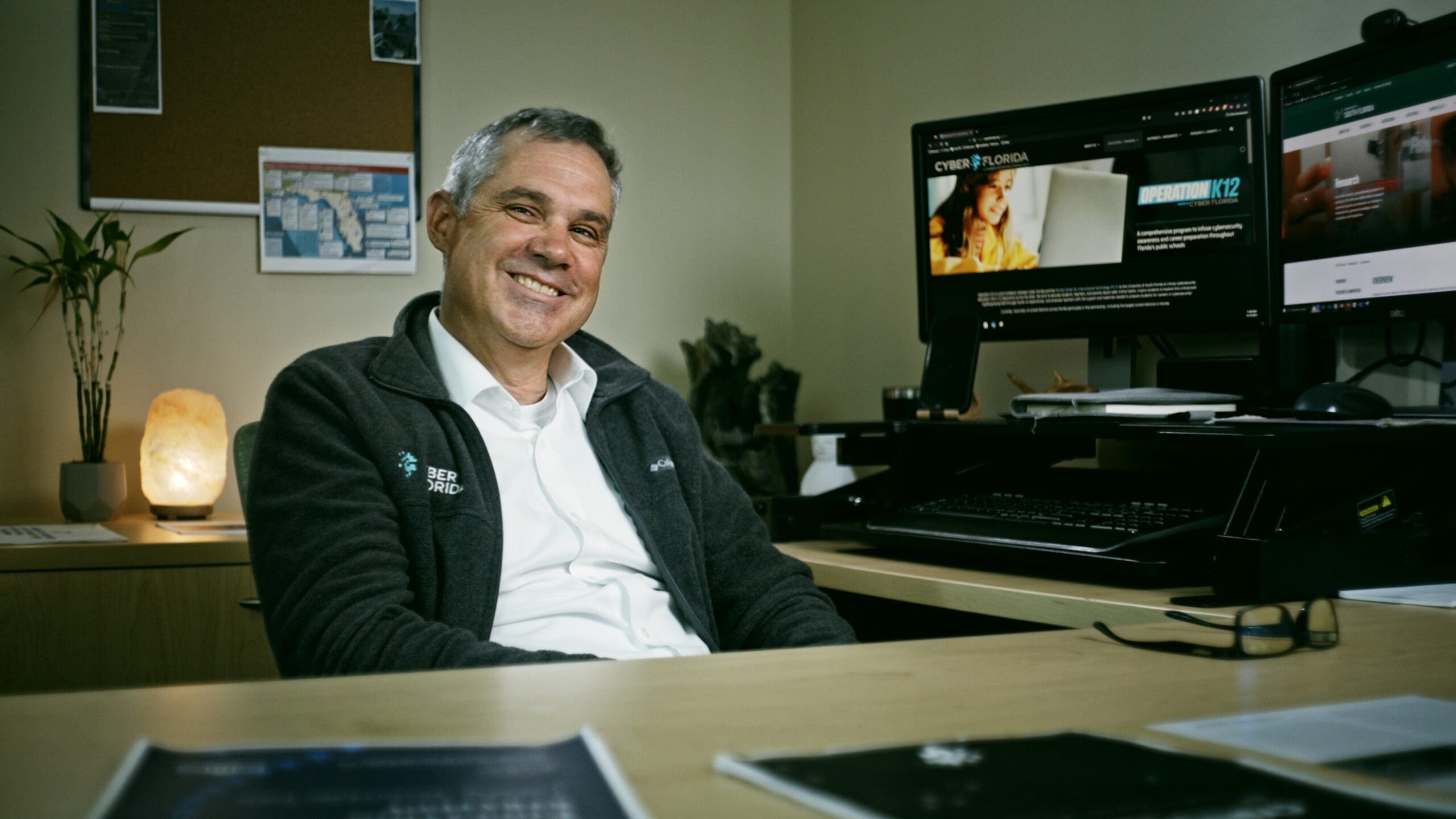2025 phaseZERO: Innovation Incubator Awardees Announced

Cyber Florida at USF Announces Awardees of the phaseZERO: Innovation Incubator Seed Fund Program
February 11, 2025—Tampa, Fla—Cyber Florida at USF announces today the recipients of the phaseZERO Innovation Incubator seed fund program, a groundbreaking initiative designed to support early-stage cybersecurity startups in Florida. This year’s awardees—TrustConnect, LLC; Stablein Solutions; CyberMirage, LLC; and AI-Guardian Lab, LLC—presented innovative solutions to tackle critical cybersecurity challenges across industries.
PhaseZERO, an initiative under Cyber Florida’s commitment to fostering cybersecurity innovation, provides selected startups with seed funding and strategic mentorship to accelerate their business development. This year’s recipients bring diverse cutting-edge solutions to the cybersecurity landscape, from AI-driven workforce training to anti-web scraping technologies. Each recipient will receive $60,000 in funding, mentorship, and access to resources to refine their business strategies and accelerate market readiness. The phaseZERO initiative is part of Cyber Florida’s broader mission to strengthen the state’s cybersecurity ecosystem through education, research, and industry collaboration.
Three of the four innovative recipients are affiliated with the University of South Florida.
Awardees, their innovations, and a remark about the significance of receiving the award:
- AI-Guardian Lab, LLC – Developing an AI-powered platform that safeguards teenagers from online human trafficking threats in gaming and social media environments. AI-Guardian aims to provide scalable solutions for schools and community programs using real-time behavior analysis and proactive intervention strategies.
- Tingting Zhang, Ph.D., Muma College of Business School of Hospitality and Tourism Management, University of South Florida, stated, “We are deeply honored by the phaseZERO award, which fuels our passion to push the boundaries of cybersecurity. With this support, we have unleashed an AI-powered real-time monitoring and learning system. This innovation transforms our AI Guardian into a digital shield that swiftly alerts parents to hidden human trafficking risks on teens’ mobile devices.”
- CyberMirage, LLC – Pioneering an advanced data loss prevention and anti-web scraping solution that incorporates obfuscated fonts, multi-layered image protection, and document security technologies. Their early-stage technology has already secured its first customer and is positioned for broader market adoption.
- Yao Liu, Ph.D., Professor, Computer Science and Engineering, University of South Florida, stated, “Receiving support from the Cyber Florida PhaseZERO program is of great significance to us. This support will accelerate the development and launch of our initial product for data loss prevention against insider threats and web scraping. With this backing, we can expedite the commercialization of our technologies and bring our products to market much sooner.”
- Stablein Solutions – Creating a Secure AI Automation Cybersecurity Framework that integrates machine learning and multi-layered security measures to optimize business processes. Their solution targets logistics and manufacturing industries, focusing on reducing manual processing costs and increasing workflow accuracy.
- Marlena Harkless, COO, Stablein Solutions and Thomas Stablein, Ph.D., Muma College of Business School of IS & Management, University of South Florida, released this statement: “Receiving the PhaseZERO Cyber Florida grant is more than just a milestone for Stablein Solutions—it’s a pivotal moment of validation and potential. As a startup focused in AI powered process automation, this award will enable us to secure critical APIs and advance cybersecurity innovation, empowering us to transform our vision of a more secure digital landscape into a tangible reality. We are deeply honored to be selected and equally motivated to elevate our community’s technological infrastructure in 2025 and beyond. This grant isn’t just funding; it’s a catalyst for meaningful change, enabling us to push the boundaries of what’s possible in cybersecurity and contribute to Florida’s emerging reputation as a hub of technological innovation.”
- TrustConnect, LLC—Developing CyberReady in the Workplace, an AI-assisted cybersecurity training platform that personalizes learning through gamification and social engagement. The platform, designed for medium to large enterprises, aims to reduce cyber incident risks by 30%.
- Xueping Liang, Assistant Professor of Cybersecurity, Blockchain and Smart Cities, Florida International University, said, “We are honored to receive the phaseZERO award, as it represents a crucial step in translating our research into real-world impact. This award enables us to advance our customer discovery efforts, refine our commercialization strategy, and strengthen industry collaborations. It is an exciting opportunity to bridge the gap between academic research and practical business applications and solutions, ultimately contributing to innovation in cybersecurity and emerging technologies.”
Ernie Ferraresso, senior director of Cyber Florida at USF, emphasized the importance of supporting early-stage cybersecurity ventures in Florida. “The phaseZERO program reflects our commitment to nurturing cybersecurity innovation in Florida, reducing the barriers to getting high impact cybersecurity solutions into the marketplace. These awardees represent visionary and practical cybersecurity solutions, each addressing real-world challenges with groundbreaking technologies. We’re excited to support their journey and see their impact on the industry and cybersecurity.”
Contact Cyber Outreach Manager Jennifer Kleman, APR, CPRC, to coordinate interviews with the award recipients at Jennifer437@cyberflorida.org.
For more information about phaseZERO, visit cyberflorida.org/phasezero. For more information about Cyber Florida and its mission to advance cybersecurity in the state, visit cyberflorida.org. Read an update about a phaseZERO pilot program awardee, StudySpaces, co-founded by two USF alumni, in this blog post.
ABOUT CYBER FLORIDA AT USF
The Florida Center for Cybersecurity at the University of South Florida, commonly referred to as Cyber Florida at USF, was established by the Florida Legislature in 2014. Its mission is to position Florida as a national leader in cybersecurity through comprehensive education, cutting-edge research, and extensive outreach. Cyber Florida leads various initiatives to inspire and educate current and future cybersecurity professionals, advance applied research, and enhance cybersecurity awareness and safety of individuals and organizations.
ABOUT PHASEZERO: INNOVATION INCUBATOR
Cyber Florida at USF’s phaseZERO: Innovation Incubator supports Florida-based researchers and entrepreneurs in commercializing cybersecurity innovations and launching new businesses. Modeled after federal SBIR/STTR Phase I programs, it complements statewide initiatives like the Florida High-Tech Corridor and I-Corps. phaseZERO provides critical seed funding and mentorship to help entrepreneurs succeed. It advances Cyber Florida at USF’s mission to foster research partnerships, attract cybersecurity companies, and support new ventures in the state.







